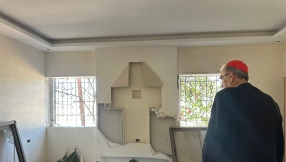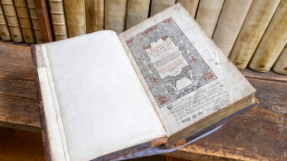Ethiopia angry at proposed U.S. aid sanction
The U.S. House of Representatives on Tuesday passed the Ethiopian Democracy and Accountability Act, which demands Washington's top counter-terrorism partner in the Horn of Africa make a host of democratic changes or face security aid cuts.
The bill, which still needs U.S. Senate approval and a presidential signature, would also deny U.S. entry visas to any Ethiopian government officials involved in what it calls human rights violations, unless the president authorised a waiver.
The act -- lobbied for by parts of Ethiopia's large diaspora population in Washington -- would bar the aid unless Ethiopia accepted outside rights monitoring, fostered an independent judiciary and media, and allowed U.S.-funded aid to those ends.
It was unclear how much aid could be involved.
"The legislation also would undermine regional stability in the Horn of Africa by jeopardising vital security cooperation between the United States and Ethiopia," Ethiopia's ambassador to the United States, Samuel Assefa, said in a statement.
He said if "the irresponsible legislation" becomes law, "it would create fresh obstacles to Ethiopia's bold efforts toward comprehensive democratic reforms."
The bill exempted counter-terrorism and peacekeeping operations from any funding restrictions, roles Ethiopia is playing in the aftermath of a war to install a U.S.-backed government in neighbouring Somalia.
Ethiopia, with the strongest army in the Horn, is in the thick of several intertwined conflicts, including its backing of the Somali government against insurgents, a border standoff with Eritrea and its fight against insurgents at home.
U.S. military and counter-terrorism leaders consider Ethiopia a critical bulwark against al Qaeda operatives known to be operating in east Africa since the 1998 bombings at the U.S. embassies in Kenya and Tanzania.
PROTEST FALLOUT
The congressional vote came two years after violent protests over Ethiopia's 2005 election results that left nearly 200 people dead when opposition protesters claiming vote-rigging clashed with security forces.
That, and a subsequent trial of opposition members including those who won seats in parliament, led to criticism from rights groups and the withholding of certain aid by the European Union and Britain.
Prime Minister Meles Zenawi says his government held the fairest multi-party polls in Ethiopian history. Outside observers noted some irregularities but said the polls were broadly fair.
Addis Ababa argues it has increasingly made reforms, and could not tolerate organised protests it said amounted to treason under the Ethiopian constitution.
In July Ethiopia pardoned nearly all of those convicted at the treason trial four days after their sentencing. Samuel said the presence of two pardoned opposition leaders at congressional hearings was proof of Ethiopia's democratic commitment.
Many in the West had seen Meles as a new breed of African leader, but his credentials suffered with the protests.
The Ogaden National Liberation Front (ONLF) rebel group, which demands greater self-rule in its eastern Ethiopian region and accuses the government of atrocities, applauded the bill.
"The U.S. House of Representatives has shown that executing the global war on terrorism is not incompatible with the forceful promotion of human rights and democracy," it said.













